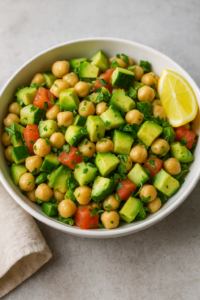
Foods to Lower Creatinine Levels: A Dietary Guide for Kidney Health
Creatinine is a waste product formed by the normal breakdown of muscle tissue, and it is typically filtered out by the kidneys. Elevated creatinine levels can indicate impaired kidney function or kidney disease. While it's essential to consult with a healthcare provider for a comprehensive treatment plan, incorporating certain foods into your diet can help support kidney function and potentially lower creatinine levels. Here’s a guide to foods that can help in managing creatinine levels effectively.
Check out these related articles, too:
Common Signs of Kidney Failure
Foods to Keep Your Kidneys Healthy- A Guide to Renal-Friendly Nutrition
What Juices are Good for Kidney Disease
Quick Kidney Boost Drink- Revitalize Your Renal Health
1. Cucumber
Cucumbers have high water content, which helps in hydrating the body and supporting kidney function by promoting urine production.
- Benefits: Hydration, diuretic properties.How to Include: Add cucumbers to salads, smoothies, or simply enjoy them as a snack. 2. Garlic
Garlic is known for its anti-inflammatory and antioxidant properties, which can help reduce the burden on the kidneys.
- Benefits: Anti-inflammatory, antioxidant.How to Include: Use fresh garlic in cooking, add to sauces, or take garlic supplements after consulting a doctor. 3. Cauliflower
Cauliflower is low in potassium and rich in vitamins and anti-inflammatory compounds that support kidney health.
- Benefits: Low in potassium, rich in fiber and vitamins.How to Include: Roast, steam, or mash cauliflower, or use it as a rice substitute. 4. Berries
Berries such as blueberries, strawberries, and cranberries are packed with antioxidants and anti-inflammatory properties.
- Benefits: High in antioxidants, anti-inflammatory.How to Include: Add to cereals, yogurt, or enjoy as a snack. 5. Red Bell Peppers
Red bell peppers are low in potassium and high in vitamins A, C, and B6, as well as folic acid and fiber.
- Benefits: Low in potassium, rich in vitamins and fiber.How to Include: Add to salads, stir-fries, or enjoy raw with dips. 6. Onions
Onions contain antioxidants that help in detoxifying the kidneys and reducing creatinine levels.
- Benefits: Antioxidant properties, detoxifying effects.How to Include: Use in soups, salads, or as a flavoring in various dishes. 7. Apples
Apples are rich in fiber and have anti-inflammatory properties that support kidney health.
- Benefits: High in fiber, anti-inflammatory.How to Include: Eat fresh apples, add to salads, or make apple sauce. 8. Cabbage
Cabbage is low in potassium and contains phytochemicals that help break down free radicals, which can improve kidney function.
- Benefits: Low in potassium, high in phytochemicals.How to Include: Add to salads, soups, or enjoy as fermented sauerkraut. 9. Fish Rich in Omega-3 Fatty Acids
Fish like salmon, mackerel, and sardines are rich in omega-3 fatty acids, which have anti-inflammatory properties beneficial for kidney health.
- Benefits: Anti-inflammatory, rich in omega-3s.How to Include: Grill, bake, or steam fish and add to meals. 10. Herbal Teas
Certain herbal teas, such as chamomile, nettle leaf, and dandelion root tea, can help detoxify the kidneys and lower creatinine levels.
- Benefits: Detoxifying, mild diuretic properties.How to Include: Drink herbal tea daily, but consult your healthcare provider for the best options. 11. Olive Oil
Olive oil is a healthy fat with anti-inflammatory properties that can benefit kidney health.
- Benefits: Anti-inflammatory, healthy fat.How to Include: Use as a salad dressing, in cooking, or drizzle over vegetables. 12. Watermelon
Watermelon is hydrating and has diuretic properties that help flush out toxins from the kidneys.
- Benefits: Hydrating, diuretic properties.How to Include: Enjoy fresh watermelon slices, add to salads, or make watermelon juice. 13. Whole Grains
Whole grains such as oatmeal, brown rice, and quinoa are excellent sources of fiber and nutrients that support overall health and kidney function.
- Benefits: High in fiber, rich in nutrients.How to Include: Incorporate whole grains into your meals as a staple carbohydrate source. Additional Tips for Lowering Creatinine Levels
Stay Hydrated
- Drink plenty of water throughout the day to help your kidneys flush out creatinine and other waste products.
Limit Protein Intake
- Too much protein can increase creatinine levels. Choose high-quality protein sources and consume them in moderation.
Avoid Creatine Supplements
- If you’re taking creatine supplements for bodybuilding, consider discontinuing them, as they can raise creatinine levels.
Reduce Salt Intake
- High sodium can strain the kidneys. Opt for low-sodium options and avoid adding extra salt to your meals.
Regular Exercise
- Engage in moderate exercise regularly, but avoid intense workouts that can increase muscle breakdown and creatinine levels.
Monitor Blood Pressure and Blood Sugar
- Keep your blood pressure and blood sugar levels under control, as these conditions can affect kidney function.
Conclusion
Managing creatinine levels through diet is a practical approach to supporting kidney health. Incorporating the above-mentioned foods into your diet can help reduce creatinine levels and enhance overall kidney function. Always consult with a healthcare provider before making significant dietary changes, especially if you have pre-existing health conditions or are on medication. By taking proactive steps and making informed dietary choices, you can support your kidneys and improve your overall well-being.



 Protected by Patchstack
Protected by Patchstack